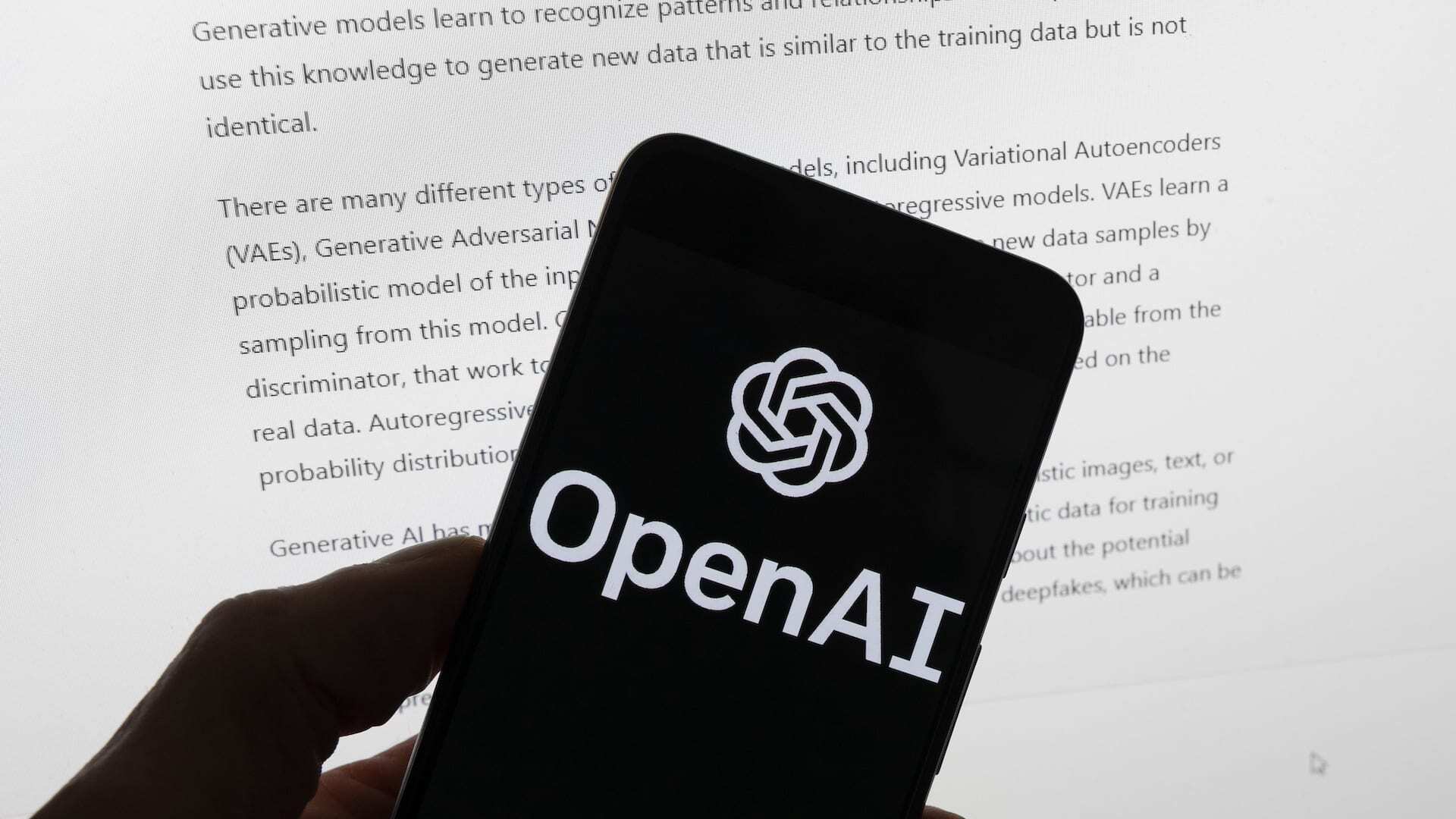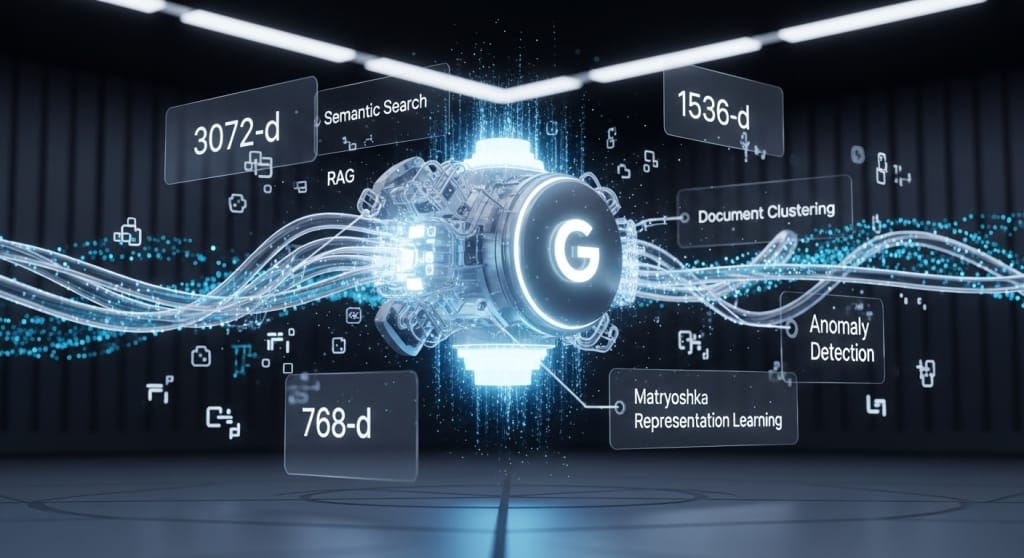- 6thWave AI Insider
- Posts
- ChatGPT Agent - Your New AI-Powered Virtual Assistant
ChatGPT Agent - Your New AI-Powered Virtual Assistant
AI Frontier: Breakthroughs, Boundaries, and Bold Moves

Breakthroughs, Boundaries, and Bold Moves
Hey tech adventurers! This Friday's AI landscape is crackling with innovation – from OpenAI's groundbreaking governance to ChatGPT's security leap. Buckle up for a wild ride through cutting-edge developments that are reshaping our digital world. 🚀🤖
(Read Time: 5 Minutes)
Today's Edition
Top Stories
ChatGPT Agent - Your New AI-Powered Virtual Assistant

Image Source: Entrepreneur
Revolutionizing Task Automation
OpenAI has introduced a groundbreaking feature called ChatGPT agent, which takes AI-powered assistance to new heights. This advanced tool can perform complex tasks that would typically require human intervention, such as creating PowerPoint presentations, planning meals, and even shopping online. ChatGPT agent's capabilities go beyond simple text generation, as it can interact with various applications and websites to complete multi-step assignments efficiently.
Key Features and Capabilities
• Presentation Creation: ChatGPT agent can analyze competitors and generate slide decks, a task that could take humans up to 30 days to complete.
• Virtual Assistant Functions: The tool integrates with apps like Gmail and Google Calendar to draft emails and schedule appointments.
• Online Shopping: ChatGPT agent can browse and make purchases online, always seeking user approval for sensitive actions.
• Data Analysis: It can create editable Excel spreadsheets based on complex financial reports.
Impact on Work and Industry
The introduction of ChatGPT agent signals a significant shift in how we approach task automation and productivity. This technology has the potential to transform various industries, particularly those relying heavily on data analysis and presentation creation. While it offers immense time-saving benefits, it also raises questions about the future of certain job roles, especially entry-level positions in consulting and finance. As AI continues to advance, we may see a redistribution of human labor towards more creative and strategic tasks, while AI handles routine and time-consuming assignments.
Sources: entrepreneur.com, fastcompany.com, techcrunch.com
OpenAI's Future - Nonprofit Control for Responsible AI Development

Image Source: FastCompany
Understanding the Proposal
OpenAI is urged to maintain its nonprofit status to ensure responsible governance of its AI technology. An advisory board highlighted that the development of AI is too crucial to be left solely to corporate interests. This board, which includes notable figures like Dolores Huerta, aims to democratize AI and improve philanthropic efforts. They believe that communities impacted by AI should have a voice in its development and usage. Although the recommendations are not mandatory, they provide a framework for evaluating OpenAI's future actions.
Key Recommendations
• The board suggests that OpenAI should enhance community participation in AI development.
• They recommend that OpenAI allocate more resources to its nonprofit arm for public benefit.
• Establishing a human leader for the nonprofit is deemed essential for accountability.
• A rapid response fund is proposed to support immediate community needs, focusing on arts, health, and economic opportunities.
Significance of the Recommendations
The call for OpenAI to remain a nonprofit reflects a growing concern about the influence of AI on society. Ensuring that AI benefits everyone rather than a select few is crucial. By involving communities in decision-making, OpenAI can foster transparency and trust. This approach aims to make AI a force for good, addressing social inequalities and enhancing public understanding of technology. The future of AI should not only be about innovation but also about inclusivity and ethical responsibility.
OpenAI's ChatGPT Agent - A Leap Forward in AI Security

Image Source: VentureBeat
Understanding the New ChatGPT Agent
OpenAI has introduced a new feature called the ChatGPT agent, which allows users to engage the AI in tasks like logging into accounts, sending emails, and managing files autonomously. This functionality raises significant security concerns as it requires users to trust the AI not to misuse their sensitive information. The agent's capabilities go beyond the standard ChatGPT, making it essential for OpenAI to ensure robust security measures are in place. The company has classified this model as "High capability" in terms of biological and chemical risks, highlighting the potential dangers associated with its use.
Key Security Measures Implemented
• A dedicated red team of 16 PhD researchers tested the ChatGPT agent extensively, uncovering seven universal exploits.
• OpenAI's proactive approach led to the identification of 110 attack attempts, with 16 exceeding internal risk thresholds.
• Significant improvements were made, achieving a 95% defense rate against visual browser attacks and enhanced monitoring capabilities.
• New safety protocols include watch mode activation for sensitive tasks, disabled memory features, and rapid remediation for vulnerabilities.
The Importance of Security in AI Development
The findings from the red team have reshaped OpenAI's security philosophy, emphasizing the need for rigorous monitoring and rapid response to vulnerabilities. As AI becomes more integrated into everyday tasks, ensuring its safety is paramount. This new approach sets a benchmark for security in enterprise AI, with the potential to influence industry standards. The lessons learned from the red team's testing will help create a more secure AI landscape, where safety is a fundamental aspect rather than an afterthought.
Google's Gemini Embedding Model - A Game Changer for AI Applications

Image Source: VentureBeat
Understanding the Breakthrough
Google has launched its Gemini Embedding model, which is now widely available and ranks first on the Massive Text Embedding Benchmark (MTEB). This model is integrated into the Gemini API and Vertex AI, allowing developers to create advanced applications like semantic search and retrieval-augmented generation (RAG). This launch presents a significant choice for businesses: they can either adopt Google's leading proprietary model or explore powerful open-source alternatives that offer greater control.
Key Features and Competitive Landscape
• Gemini Embedding converts text and other data into numerical formats, enhancing the capabilities of AI applications beyond basic keyword matching.
• It supports various data types, including images and audio, allowing for comprehensive data representation.
• The model is flexible, offering embeddings in different sizes while maintaining essential features, making it adaptable for various enterprise needs.
• While Gemini leads the market, it faces strong competition from established models like OpenAI and specialized challengers like Mistral and Cohere, which cater to specific enterprise requirements.
Significance for Enterprises
The introduction of the Gemini Embedding model is crucial for enterprises looking to enhance their AI capabilities. It enables more accurate searches, document classification, and sentiment analysis. Moreover, the model's flexibility and competitive pricing make it accessible to a wide range of industries. However, the rise of open-source alternatives provides businesses with options that prioritize data security and customization. As companies weigh their choices, the balance between proprietary models and open-source solutions will shape the future of AI technology in enterprise settings.
Swedish AI Startup Lovable Becomes Europe's Newest Unicorn

Image Source: TechCrunch
Overview of Lovable's Success
Lovable, a Swedish startup focused on AI-driven coding, has quickly risen to unicorn status with a $1.8 billion valuation. In just eight months since its launch, the company secured a remarkable $200 million in Series A funding led by Accel. The platform allows users to create websites and apps using natural language, making it accessible even to non-technical users. Lovable has gained over 2.3 million active users, with a significant portion converting to paying subscribers.
Key Highlights
• Lovable boasts over 180,000 paying subscribers and $75 million in annual recurring revenue within seven months. • The startup has a lean team of only 45 employees, showcasing efficient growth.
• Notable investors include high-profile figures like Klarna's CEO and Slack's co-founder.
• Lovable aims to support users in creating both prototypes and production-grade applications for businesses.
Significance of Lovable's Growth
Lovable's rapid ascent reflects a growing demand for user-friendly coding tools. By enabling non-technical users to develop apps, it bridges the gap between ideas and execution. This trend not only empowers individuals but also encourages innovation across various industries. Lovable's success could inspire similar startups, fostering a new wave of accessible technology solutions. As businesses increasingly seek agile tools, Lovable’s model positions it to capture a significant share of the market.
Editor’s Picks
Netflix is using AI to improve film production efficiency and viewer engagement.
Nandini Ramakrishnan’s Mesh is transforming accounting through AI automation.
Invoca’s AI strategy emphasizes clarity, trust, and a culture of experimentation.
Slack’s new AI tools aim to transform workplace collaboration by enhancing search and productivity features.
Robinhood’s engineers are using AI tools for over 50% of new code generation.
Mistral AI is emerging as a key player in the European AI market, competing with giants like OpenAI.
Mistral’s latest updates to Le Chat enhance its capabilities as a research assistant and productivity tool.
Netflix’s use of AI in El Eternauta marks a new era for film technology.
AI companions are now a common part of teenage life, with many seeking emotional support and connection from these digital friends.
AI is fast but still needs human collaboration to effectively search for flood victims.
Perplexity is expanding in India, partnering with Airtel to reach millions.
Companies must adapt their PR strategies to effectively engage with AI tools.
Confident Security’s CONFSEC tool promises to safeguard user data in AI applications.
Users of Claude Code are facing unexpected usage limits and confusion over service restrictions.
Researchers have discovered a Middle Eastern surveillance company exploiting SS7 flaws to track phone locations.
Featured AI Jobs
SVP of Enterprise AI Strategy & Engineering
Forge · San Francisco, CA (On-site)
SVP of Enterprise AI Strategy & Engineering
Forge · New York, NY (On-site)
Lensa · Providence, RI (Remote)
UnitX · Santa Clara, CA (On-site)
Senior Strategic Partnerships Manager, EPG
NVIDIA · Santa Clara, CA (Hybrid)
Head of Engineering, Product AI
Atlassian · San Francisco, CA (Remote)
6thWave AI Insider is the go-to AI digest for the movers and shakers. Thousands of tech visionaries, global innovators, and decision-makers—from Silicon Valley to Wall Street—get their daily AI fix from our AI News Hub and Newsletter. We're the fastest-growing AI-centric News Hub on the planet.
Stay curious, stay ahead!
Ava Woods, Your AI Insider at 6thWave.
P.S. Enjoyed this AI knowledge boost? Spread the digital love! Forward this email to a fellow tech enthusiast or share this link. Let's grow our AI-savvy tribe together!
P.P.S. Got a byte of feedback or a quantum of innovation to share? Don't let it get lost in the noise—reply directly to this email. Your input helps upgrade my algorithms!